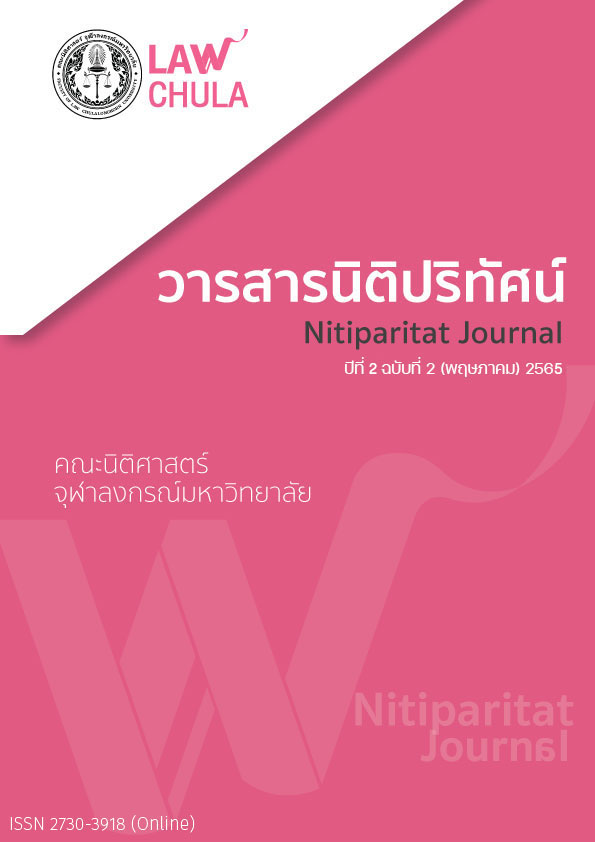Impeachment: removal from offices in the modern Thai constitutions
Abstract
The 1997 Constitution introduced the impeachment mechanism for the first time in Thai legal history. This legal concept also had been found in the 2007 Constitution until the 2017 Constitution framers deliberately cut its life short. Hence, a question as to how the dismissal would affect the legislative and public control over the executive branch arises. This article explores the doctrine of impeachment, its interaction with liberal democratic principles, and the Thai impeachment mechanism. Ultimately, it suggests how Thailand’s political environment under the existing constitution may worsen democratic accountability, especially with the absence of an impeachment mechanism.
References
วัชรา ไชยสาร, พัฒนาการมีส่วนร่วมในทางการเมืองกับประชาธิปไตยแบบมีส่วนร่วมและพหุการเมือง : การเมืองภาคประชาชน [ออนไลน์]. แหล่งที่มา : https://www.parliament.go.th/ewtadmin/ewt/parliament_parcy/ewt_news.php?nid=16001&filename=visit [9 ตุลาคม 2564]
จุฬีวรรณ เติมผล, การมีส่วนร่วมทางการเมืองในระบอบประชาธิปไตย, (กรุงเทพมหานคร: 2561), หน้า 7-9
บรรหาญ จงเจริญประเสริฐ, ความสัมพันธ์ระหว่างหลักนิติธรรมและนิติรัฐ (สำนักงานศาลรัฐธรรมนูญ), หน้า 2-5.
จุฬีวรรณ เติมผล, เรื่องเดียวกัน, หน้า 10-12.
เรื่องเดียวกัน, หน้า 13-16.
ณวัฒน์ ศรีปัดถา, “ความเป็นไปได้ในการนำหลักการในระบบอิมพีชเมนต์ของประเทศสหรัฐอเมริกามาปรับใช้ กับการถอดถอนบุคคลออกจากตำแหน่งตาม
รัฐธรรมนูญแห่งราชอาณาจักรไทย”, (วิทยานิพนธ์ปริญญานิติศาสตรมหาบัณฑิต สาขาวิชานิติศาสตร์ บัณฑิตวิทยาลัย จุฬาลงกรณ์มหาวิทยาลัย, 2544), หน้า 32.” ดูเพิ่มเติม ณวัฒน์ ศรีปัดถา, อ้างแล้วในเชิงอรรถที่ 1, หน้า 32-33.
Downloads
Published
How to Cite
Issue
Section
License
Copyright (c) 2022 ศรัณย์พัทธ์ ถิรเมธาวงษ์, ศุจิกา เทียมทินกฤต

This work is licensed under a Creative Commons Attribution-NonCommercial-NoDerivatives 4.0 International License.
The manuscript is original, does not contain plagiarism, and does not infringe any copyright.



